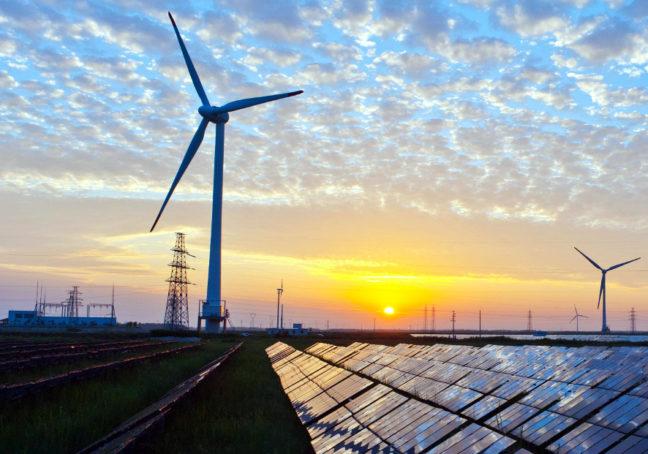A bill introduced in the state Senate last month would no longer require Wisconsin state agencies to purchase a portion of their energy from renewable resources.
Currently, the University of Wisconsin System is part of six agencies that are required to purchase 20 percent of their energy from renewable resources. If the bill passed, this requirement would be eliminated.
State Rep. Mike Kuglitsch, R-New Berlin, a cosponsor of the bill said in a statement that the bill is unnecessarily duplicative of requirements already in place, such as the requirement for utility companies to produce a certain percentage of energy from renewable resources.
“Wisconsin already has a 10 percent minimum usage of renewable resources built into the electricity market, so eliminating the 20 percent state agency mandate will save taxpayers dollars that can be applied elsewhere,” Kuglitsch said.
The bill does not change the contracts that are currently in place, Kuglitsch’s staff member Garrett Huffman said. Some of the contracts don’t expire until 2030, so this will not change anything in the short-term, he said.
Huffman added this bill does not stop agencies from continuing to purchase 20 percent of their energy from renewable resources — it would just no longer be required by law to do so.
Sarah Barry, the government relations director at Clean Madison, said the bill would take Wisconsin backward.
“[The bill] certainly sends the signal that we’re losing our commitment and responsibility to come up with clean energy,” Barry said.
The 20 percent mandate was established in 2005 under Act 141. Going back on an agreement made 12 years ago is a shame, especially since it would help the energy-producing sector of the economy, Barry said.
Barry said the cost of solar has gone down dramatically and the use of wind has picked up across the country.
“The sun and the wind are free, and the cost of these technologies keeps going down,” Barry said.
A U.S. Energy and Employment report found 14 percent of the new jobs created in last year were in the energy sector, especially in wind and solar. The wind and solar workforce increased by 32 percent and 25 percent, respectively, the report said.
In the future, Barry would like to see legislation introduced to make Wisconsin’s Renewable Portfolio Standard higher. RPS is the requirement where utilities get a certain portion of energy from renewable resources — which is 10 percent in Wisconsin.
“I think it would be really wise for the state to increase the RPS, but unfortunately the current legislative environment in Wisconsin is not very favorable to this proposal,” Barry said.
Wisconsin has the lowest RPS in the country, Barry said. It was just surpassed by Michigan last year after they increased the RPS to 15 percent by 2021. Other neighboring states, like Illinois and Minnesota, have an RPS of 25 percent by 2026 and 26.5 percent by 2025, respectively, Barry said.
This signals Wisconsin falling further behind its neighbors in regards to innovation in energy and responsibility to the environment, she said.
“Renewable energy is the future, and it’s very important that we embrace the future for environmental reasons, climate change reasons, but also because it’s the technology of the future,” Barry said.


